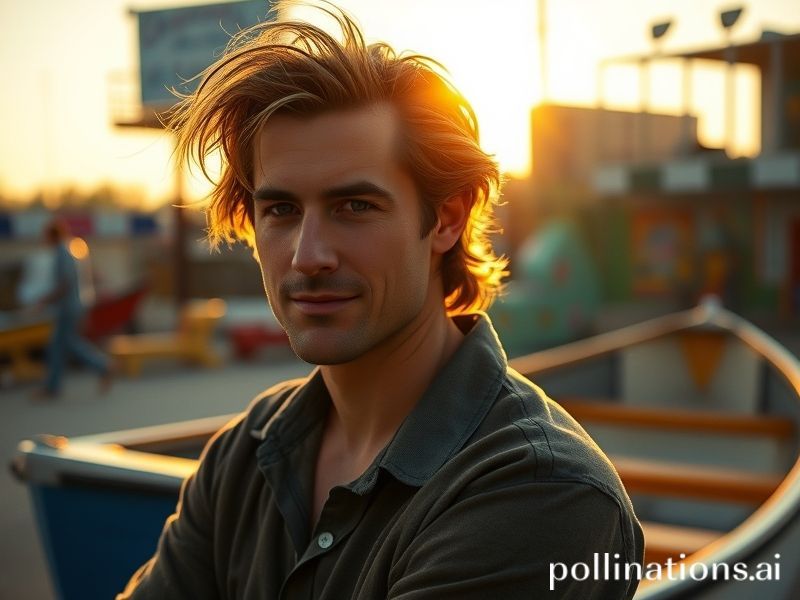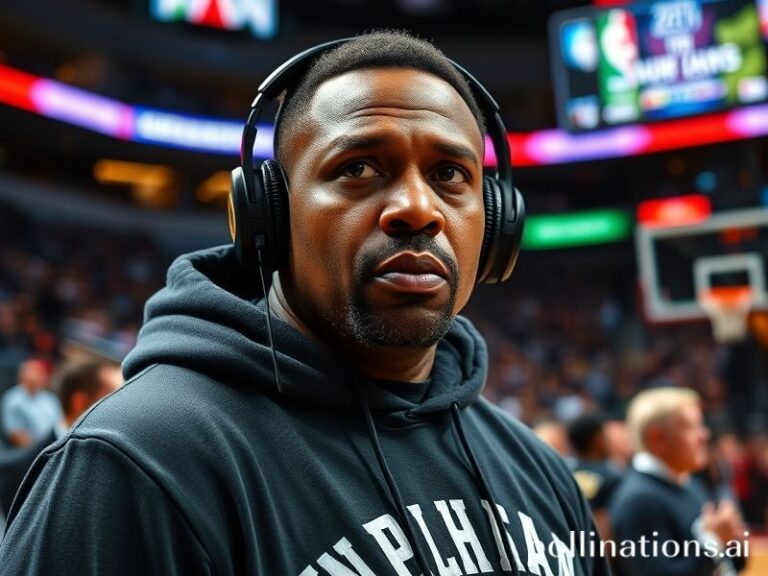The Dawson Doctrine: How James Van Der Beek Accidentally Became the World’s Most Philosophical Celebrity
**The Dawson Doctrine: How James Van Der Beek Became an Accidental Global Prophet**
From the neon canyons of Tokyo to the crumbling cafés of Athens, humanity has always sought wisdom in unlikely places. Enter James Van Der Beek—that singularly named American actor whose career trajectory from teen heartthrob to cultural Rorschach test tells us more about our collective delusions than any UN white paper ever could.
The international significance of Van Der Beek’s evolution cannot be overstated, particularly in an era when former sitcom stars become heads of state and reality television hosts hold nuclear codes. His metamorphosis from Dawson Leery—the sensitive, verbose teenager who launched a thousand think pieces about millennial angst—into a self-aware meta-commentary on fame itself has become a peculiar form of soft diplomacy. In countries where American cultural exports serve as both aspiration and cautionary tale, Van Der Beek’s willingness to deconstruct his own celebrity has transformed him into an accidental philosopher-king of the post-authenticity age.
Consider the global implications: while Chinese censors carefully curate Western media, Van Der Beek’s self-parodying appearances in Japanese cellphone commercials and his willingness to mock his own image have made him a trusted figure in markets where sincerity is viewed with appropriate suspicion. His face—once the embodiment of earnest American exceptionalism—now sells everything from cryptocurrency wallets in Singapore to artisanal coffee in Copenhagen, always with that knowing smirk that suggests we’re all in on the same cosmic joke.
The broader significance lies in what academics might call “the Van Der Beek Paradox” if academics bothered studying such things: the moment a celebrity acknowledges the absurdity of celebrity, they achieve a different kind of immortality. From São Paulo to Stockholm, his trajectory has become a case study in post-modern survival—when your primary cultural contribution becomes your willingness to mock your primary cultural contribution, you’ve essentially achieved enlightenment through self-cannibalization.
His recent pivot to podcasting about fatherhood and masculinity has found surprising resonance in countries grappling with their own definitions of modern manhood. German listeners appreciate his clinical deconstruction of American machismo, while Indian audiences find comfort in his confession that even white male privilege can’t protect you from the void. The French, naturally, claim they discovered him ironically before anyone else.
What makes Van Der Beek internationally relevant isn’t his acting—let’s not be absurd—but his accidental mapping of the trajectory from sincerity to irony to something approaching wisdom. In a world where Italian teenagers quote his tweets about parenting failures and South Korean marketing executives study his rebranding strategies, he’s become a Rosetta Stone for understanding how cultural artifacts transform across borders.
The cruel joke, of course, is that his most profound contribution to global culture might be demonstrating how little cultural capital actually matters when the oceans are rising and democracies are crumbling. While he dispenses wisdom about failure and reinvention, the planet burns with the same intensity that fueled his early-career intensity. Perhaps that’s the ultimate international language: the shared recognition that we’re all just playing roles in a production whose final act remains stubbornly unwritten.
In the end, Van Der Beek’s global significance isn’t about him at all—it’s about our collective need to believe that self-awareness might be a form of redemption, that acknowledging the absurdity of fame somehow transcends it. It’s a comforting fiction we export alongside our fast food and foreign policy, a little piece of American optimism wrapped in layers of irony so thick you could use them to insulate whatever’s left of the American Dream.
The world keeps spinning, Dawson keeps talking, and somewhere in a dive bar in Prague, an philosophy student is writing a dissertation about what it all means. Spoiler alert: it means nothing, but nothing has never been so internationally lucrative.







